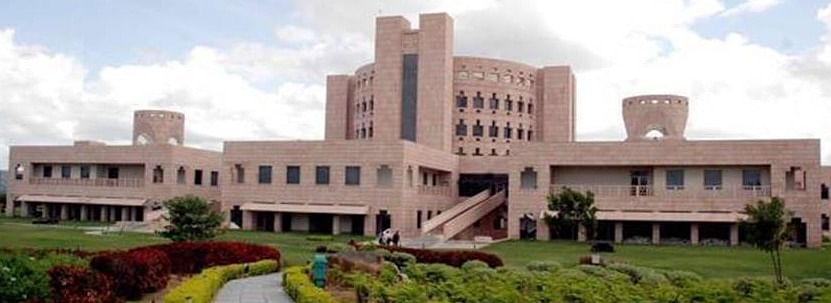CFA Jobs, Scope, Salary in India

Chartered Financial Analyst course is designed to provide extensive training and knowledge to graduates to pursue careers in various roles such as financial analyst, investment strategist, risk manager, investment banker, etc. The demand for CFA graduates is increasing significantly in domestic and international markets. Chartered Financial Analyst syllabus is comprehensive that trains the candidates through internship, training, projects, etc. for the required profession.
Pros and Cons of Becoming a CFA
Being a CFA requires a great deal of commitment, as this is an ever-evolving field. Along with maintaining and managing the accounts, valuations, and taxation, a CFA has a lot of responsibilities. In the CFA industry, mistakes are not tolerated. The following are the advantages and disadvantages of becoming a CFA:
Pros of Becoming a Chartered Financial Analyst (CFA)
CFA is a difficult task that necessitates extensive research and knowledge. Numerous factors contribute to it being a lucrative job globally and one of the most sought after in multinational corporations. It is high-paying jobs that provide opportunities for advancement and new ideas.
Cons of Becoming a Chartered Financial Analyst (CFA)
It is not easy to be a CFA; it entails a great deal of responsibility. CFA is under a lot of pressure to be accurate in its tax auditing, property management, and valuation. They are in charge of multi-million dollar estates and appraisal properties. They're also in charge of many calculations for property valuations, taxes, and accounts for MNCs, millionaires, and others.
Career Prospects and Job Scope for a CFA Graduate
CFA career opportunities exist for the graduates in abundance. After completing the three consecutive levels, the CFA jobs in India are available for professionals. Students can work in different industries such as Banking Sectors, Auditing Department, Auditing Companies, Auditing Firms. There is a lot of demand for the CFA Course, as obtaining the certificate is not easy, and due to that reason, the graduates of this course tend to be above average than their peers. Below are some of the popular jobs after CFA are done by graduates.
- Tax Auditing
- Financial Consultancy
- Managing Treasury
Below is a list of career prospects along with the responsibilities of CFA graduates:
Portfolio Manager
Portfolio managers are financial advisors who assist you in making investment choices. Client-focused advisors who manage individual or corporate investments are typically known as portfolio managers. The following are the responsibilities of the portfolio manager:
- Implementing investment strategies to assist clients in achieving their objectives
- Portfolio development and management
- When to trade securities and when not to trade securities
Risk Analyst/ Risk Manager
Businesses employ risk analysts and risk managers to reduce the negative consequences of risk events such as natural disasters, operational risks, and financial risks. Professionals in risk management use techniques or precautions to prevent future risks. Risk analysts assess future risks, while risk managers put strategies to deal with unforeseen circumstances.
Risk managers and analysts are responsible for a variety of tasks, including;
- Using risk information management software to interpret risk data (RIMS)
- Consider the potential for future risks to have a negative impact.
- Determine which practices may put you at financial risk.
Research Analyst
CFA charter holders may be able to find work conducting research and analysis in the investment industry. Credit analysts and equity analysts are two types of analysts who analyze investment research. Research analysts' duties and responsibilities include gathering and analyzing data on investable securities and companies and developing profit models. Portfolio managers and clients can rely on research analysts to conduct assessments and make recommendations. Some of the skills required to work as a research analyst are listed below.
- Data examination
- Examine the industry and the company.
- A financial assessment
Investment Banker
Investment bankers are professionals with experience in the financial services industry who specialize in financing and mergers and acquisitions. These professionals' services benefit start-ups, established organizations, and governments alike. In return, investment bankers expect fixed fees or fees. Investment bankers contribute significantly to the company's growth. They have the following responsibilities as an investment banker:
Book building, an initial public offering (IPO), prospectus preparation, and investment meetings are all examples of financing methods. Issued or sold securities as part of a private placement, mergers, sales, and acquisitions are made.
Private Wealth Manager
HNWI Managers, as the name implies, are professionals who assist HNWI or HNWI investors with investment management and financial planning. The role of private wealth managers has grown significantly as the fintech industry has grown. Support in analyzing the complexities of financial markets can benefit private investors. These people also help their families manage their investments. The following are some of the services provided by a private wealth manager:
- Management of a Portfolio
- Real estate and retirement goals
- Service of taxation
Areas of Recruitment for CFA Graduates
CFA job opportunities are available for graduates in many sectors of the economy. CFA job opportunities in India are available in the financial sector and gain specialization in a specific field. Listed below are some of the popular areas of recruitment for CFA graduates:
- Banks
- Law Firms
- Auditing Firms
- Public Limited Companies
Salary Packages for CFA Graduates
According to Payscale, the CFA average salary in India is INR 3.5 - 8 LPA for a CFA in India. The CFA salary can differ due to various factors such as location, experience, and higher education. Chartered Financial Analyst salary in India is very well-paying, as the course is a very competitive course and therefore, the demand is very high. Listed below are the average Chartered Financial Analyst salary according to the job role:
| Job Title | Avg Salary Per Annum |
| Financial Analyst | IN 3 - 4 LPA |
| Financial Planning & Analysis Manager | INR 5 LPA |
| Finance manager | INR 10 LPA |
| Auditor | INR 5 LPA |
| Supply Chain Analyst | INR 8 LPA |
Source: Glassdoor
CFA Salary Range in India
The table below contains the salary range of CFA graduates in India:
| CFA Salary | Amount |
| Lowest | INR 2.9 LPA |
| Highest | INR 20 LPA |
| Average | INR 6.83 LPA |
Source: Payscale
Designation-Wise CFA Salary in India
The average salary for occupations that are normally considered according to the CFA is shown in the table below.
| Job Profile | Average Annual Salary |
| Portfolio Manager | INR 10.83 LPA |
| Risk Analyst/ Risk Manager | INR 9.96 LPA |
| Investment Banker | INR 9.04 LPA |
| Investment Officer | INR 2.85 LPA |
| Research Analyst | INR 6.51 LPA |
| Data Scientist | INR 5.15 LPA |
| Private Wealth Manager | INR 9.06 LPA |
| Investment Strategist | INR 6.51 LPA |
| Investment Consultant | INR 9 LPA |
| Accountant/ Auditor | INR 4.90 LPA |
Source: Payscale
CFA Gender Breakdown
According to the survey, the CFA professional sector employs 89.7% of the male population and only 10.3% of the female population.
This ratio is still low, but we can expect more women to work in this field in the coming generations. This also demonstrates that this industry employs the vast majority of men.
Private Jobs for CFA Candidates
CFA's average salary in India is around INR 5 LPA in private jobs. The job designations include:
| Top Private Hiring Companies | Salary |
| Ernst and Young | INR 6 LPA |
| KPMG | INR 12 LPA |
| Deloitte | INR 6.5 LPA |
Source: Payscale
Government Jobs for CFA Candidates
Government jobs for the CFA are also available in the job market for fresh graduates. The average salary of fresh graduates is around INR 3.7 LPA. The CFA salary in India per month differs according to many factors. The job designations with CFA average salary in India are listed below:
| Top Government Hiring Organisations | Salary |
| IIPS | INR 3.5 LPA |
| UPSC | INR 3.4 LPA |
| Ministry of Finance | INR 3.5 LPA |
Source: Glassdoor
Job Opportunities Abroad for CFA Graduates
There are plenty of jobs available for CFA graduates in India as well as abroad. CFA is a specialization that has demands all over the world, not just in India. It can provide students with a wide range of reading and successful jobs.
Top Companies for Chartered Financial Analysts
Below is a list of the top international companies that hire CFA Graduates:
- Deloitte
- KPMG
- Ernst and Young
Best Countries for Chartered Financial Analysts
Below is the list of top countries offering job opportunities to CFA Graduates:
- United Kingdom
- Scotland
- Ireland
- Dubai
- Canada
- USA
Various Career Designations Abroad for CFA Graduates
Here is the list of exciting job roles that attract CFA graduates to work abroad:
- Finance Manager
- Consultant
- Account Manager
- Accountant
Alternate Career Options After CFA
Candidates who complete the CFA programme will be able to pursue the following career paths in addition to the ones listed above.
- Data Scientist / Accountant / Auditor
- Investment Consultant
- Investment Strategist
- Chief Investment Officer








